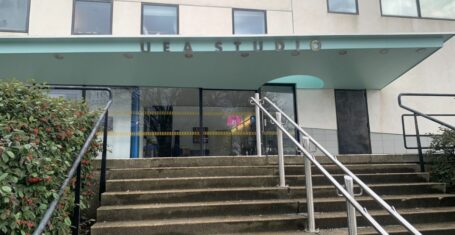
Why I’m Voting No
James Forde thinks the referendum is incredibly trivial and badly-planned. Do you agree?
I’d like to preface this article by saying that I am not a Robin Thicke fan.
I’ve heard “Blurred Lines”, watched the not-so-subtle music video, and laughed at some of the YouTube feedback; “This porn has good music.” It’s a forgettable single that relies on the controversy generated by amplified sexual undertones and the ongoing mental breakdown of Miley Cyrus to compensate for its lack of genuine substance. It’s also pretty much ripped off of Marvin Gaye’s 1977 “Got to give it up.”
Do I like Robin Thicke? Not particularly. Do I think his song should be banned from Campus? Absolutely not.
In case you don’t know, the Union is holding a referendum on whether to ban “Blurred Lines” from University venues on Wednesday the 27th of November. The proponents of this ban have stated that there is ‘clear theme of sexual harassment and lack of sexual consent.” But is this true? Can’t the “Blurred Lines” referred to in the song merely be about the ambiguity of whether ones feelings of attractions are requited? Similarly, the “it” in the repetitive “I know you want it” is never clearly defined. Any interpretations into this song are going to be based on its ambiguity.
The controversy surrounding “Blurred Lines” gained widespread attention with a Buzzfeed article comparing parts of the song with quotes from rape survivors quoting their rapist. The opposition’s argument is primarily based on juxtaposing two different contextual events that allows them to come to any conclusion they see fit. There is very little that is overtly sexist within the song, and it’s only from an analysis of subtext that one can truly make the argument that it is. Can we really ban media and forms of expressions by catering to vague, ambiguous and subjective interpretations from a small subset of the student body? No.
This brings me to another implication of this referendum. A key reason to vote no on banning “blurred lines” is the manner in which the referendum has been set up. Victoria Finan has already expressed her disappointment over the discreet manner in which this referendum has been advertised. I would be surprised if many readers even knew of the referendum this Wednesday before reading her article. The reason behind this, according to Finan, is because “the only way you could find that out is if you were a member of the official Council Facebook group, only available to councillors.”
The consequences of this are that we have no one leading the vote to say “No” on this ban, and a vocal minority prepared to vote yes who are conveniently some of the only people aware of the vote’s actual date. This undemocratic process has already been seen at Edinburgh University, the first to actually impose a ban of “Blurred Lines”. Only about one percent of the student body voted, and the following Sunday after the vote, a DJ performing at a University function was stopped halfway through playing “Blurred Lines” without being given any prior notification on the change of policy.
True feminism thrives on discussion, consent and consensus on mutual issues. If this motion succeeds by not trying to expand the discussion to include everyone at the University in a timely manner they miss the whole point of social justice. Announcing a meeting for discourse the night before it happens and two days before the vote is unacceptable. The point of social justice is not for a small, enlightened group of people to underhandedly dictate what is right/wrong, offensive/inoffensive it is to come to common ground through communal discussion and to educate why something is offensive or immoral.
This culture of banning without public discourse is becoming all too frequent throughout the British University system. If we ban Blurred Lines where does it stop? Surely more bans will follow with no further discussion. Students don’t attend to University to block out everything that’s happening in the real world. Nor do I believe that the conviction that one should be able to ban things is something we should go into the real world believing. We may be fooling ourselves to believe we’re ending the trivialization of lack of consent, but all this referendum has done is to trivialise student consent campus-wide.









































